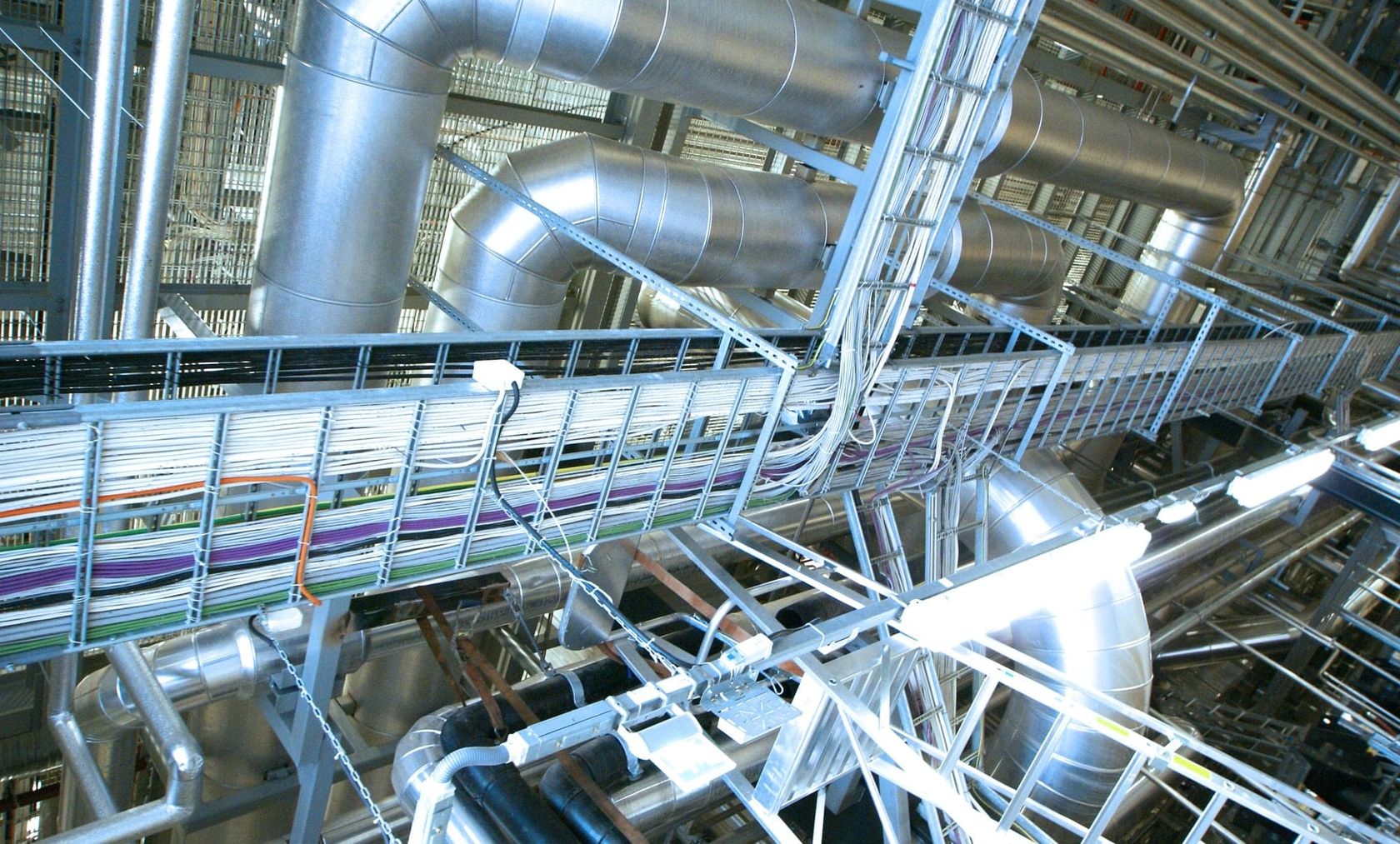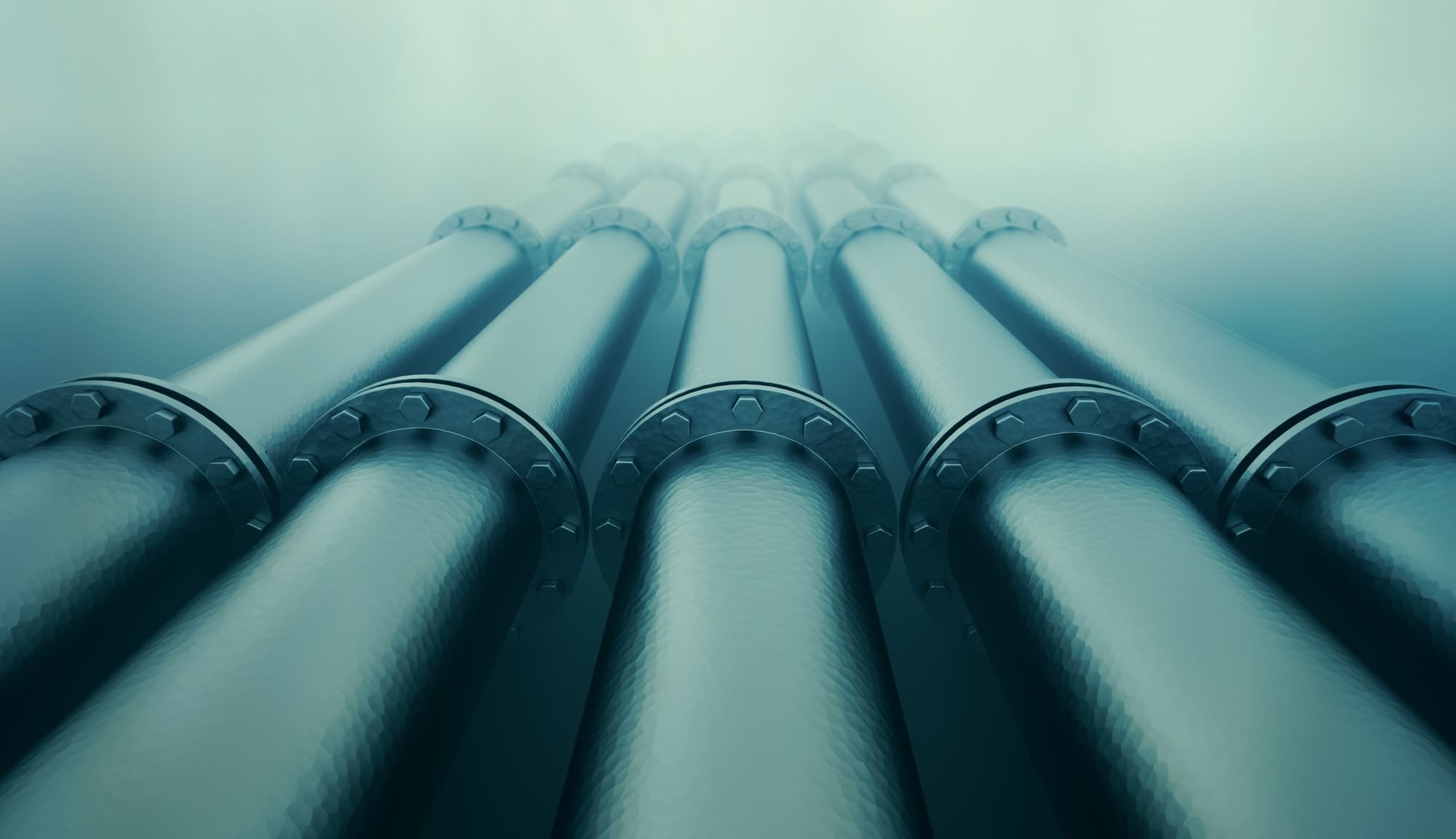Steel pipes are divided into two groups: welded and seamless. Aside from the round shape, pipes made of steel and non-ferrous metals can also have a square, rectangular or an oval cross-section. Pipes can be of large (480-2,500 mm and more), medium (114-480 mm) and small diameter (up to 114 mm).
Seamless pipes
Seamless pipes are produced in special cross-screw rolling mills. First, a solid, round billet is pierced through, and then it is rolled until it meets the dimensional requirements for wall thickness, inside and outside diameters.
This product is intended mainly for use in the oil and gas industry. Oil country tubular goods (OCTG) are used in drilling, equipping and operating oil and gas wells. Line pipes are used for the transportation of crude oil and natural gas from the fields to refineries and storage facilities. Tubes for industrial and special applications are used in the chemical, petrochemical, food processing and nuclear industries.
Welded pipes
Welded pipes are produced primarily by pipe welding machines. Large diameter pipes are produced from plates, and small and medium diameter pipes from hot- or cold-rolled coils. A workpiece is given the required size and formed. Edges of a workpiece are typically welded by high-frequency welding: they are heated up to a high temperature, compressed so that the molten metal hardens, cooled and cut to length.

Typically, carbon steel grades are used for the production of steel pipes. They have good strength but low wear and heat resistance properties. Pipes are also made of low-alloy and alloy steels. Alloying elements help improve the performance characteristics of the products, but they also affect weldability.
Welded pipes are much cheaper than seamless ones, which makes their application range significantly wider. Today, this product is indispensable when it comes to the construction of pipeline systems for various purposes. Specifically, large diameter pipes are used in the construction of gas and oil main pipelines, sewage and heating networks, and the wastewater systems of industrial plants.
Small and medium diameter pipes are used in the housing and public utility sector for plumbing and gas lines for houses and industrial facilities. Such products are popular because it is not permitted in many places to install pipes made of other materials. In particular, using plastic tubes for gas pipelines is banned by the standards and regulations applicable in many countries.
Welded pipes are also used in construction for the fabrication of steel structures as well as the services inside and around houses. Furthermore, pipes are used in machine-building and furniture industries.

Metinvest products
Metinvest Group not only manufactures steel pipes but also supplies rolled steel for the pipemaking industry. The company produces welded pipes and supplies plates, hot-and cold-rolled coils for producers of pipes of various diameters in Europe, Asia and the CIS.
The production of steel pipes at Metinvest is based at the Ilyich Iron and Steel Works in Mariupol. The steelworks has two electric-welded pipe shops that use the high-frequency welding technology. Four welding lines at the steelworks produce a wider range of small and medium diameter pipes, as well as square and rectangular welded sections.
Metinvest manufactures these products in accordance with the EN 10219 standard and its Ukrainian equivalent DSTU EN 10219. Welded pipes produced at Ilyich Steel are in high demand in the construction and housing and public utility sectors. The products are mainly sold in the local market, the CIS and Europe.
Metinvest's large diameter pipes and plates were used in the construction of the world's largest oil and gas main pipelines: Guandu-Reduc (Brazil); Eelam-Kermanshah, IGAT V (Iran); Central Asia-China (Uzbekistan, Kazakhstan); Arab Gas (Egypt, Jordan); the Blue Stream, the Eastern Siberia-Pacific Ocean pipeline, the Druzhba pipeline (Russia); and Beineu-Shymkent (Kazakhstan).
